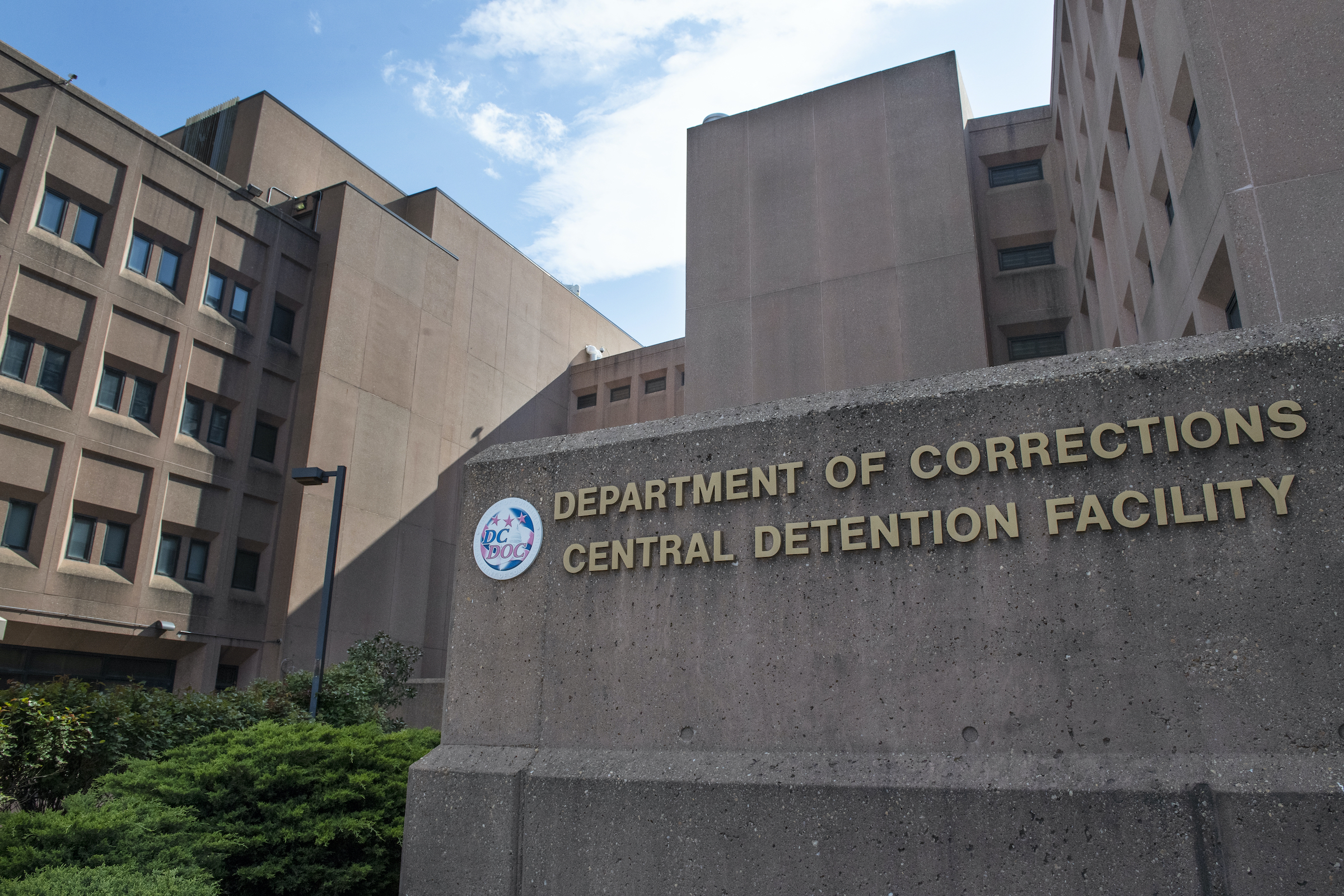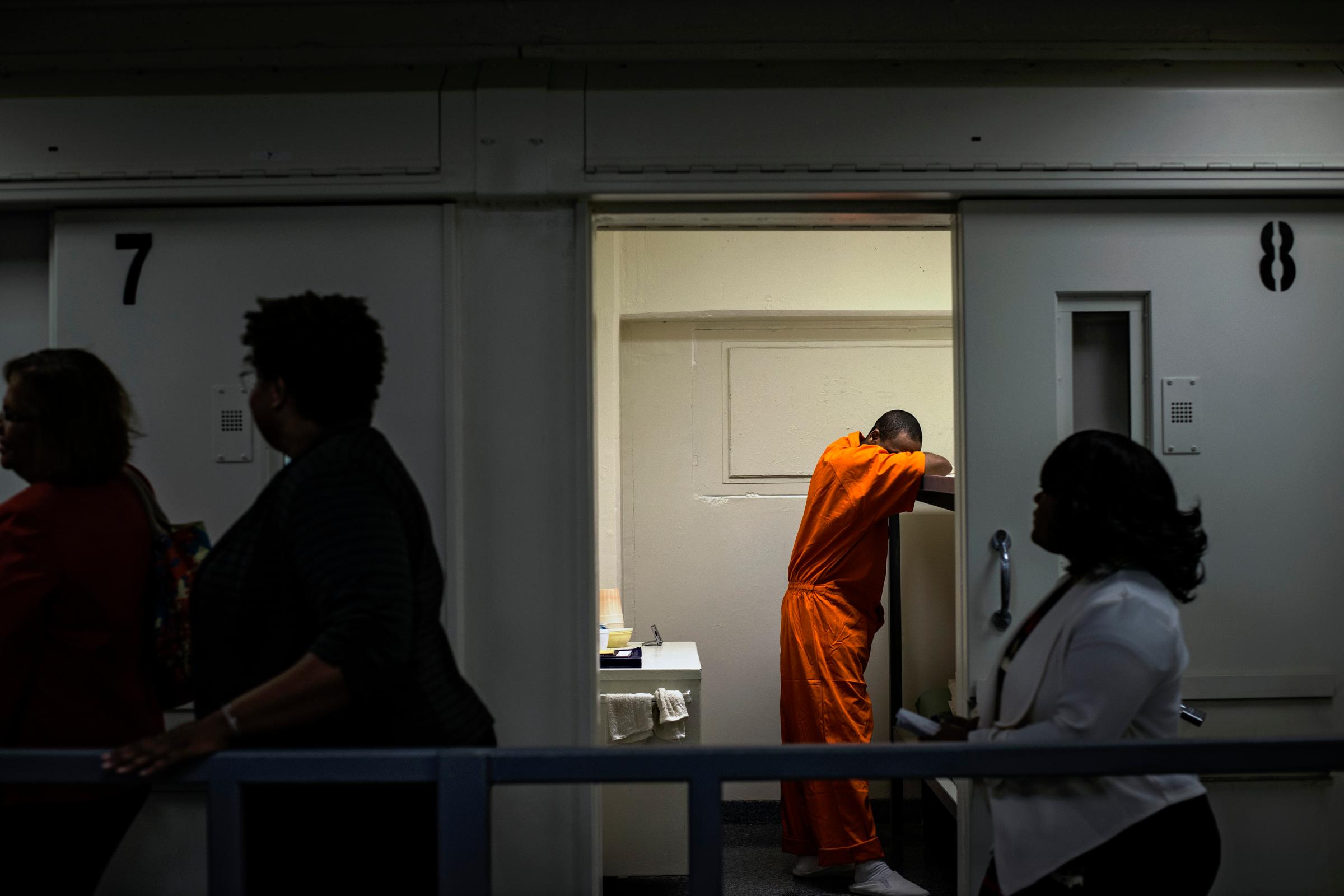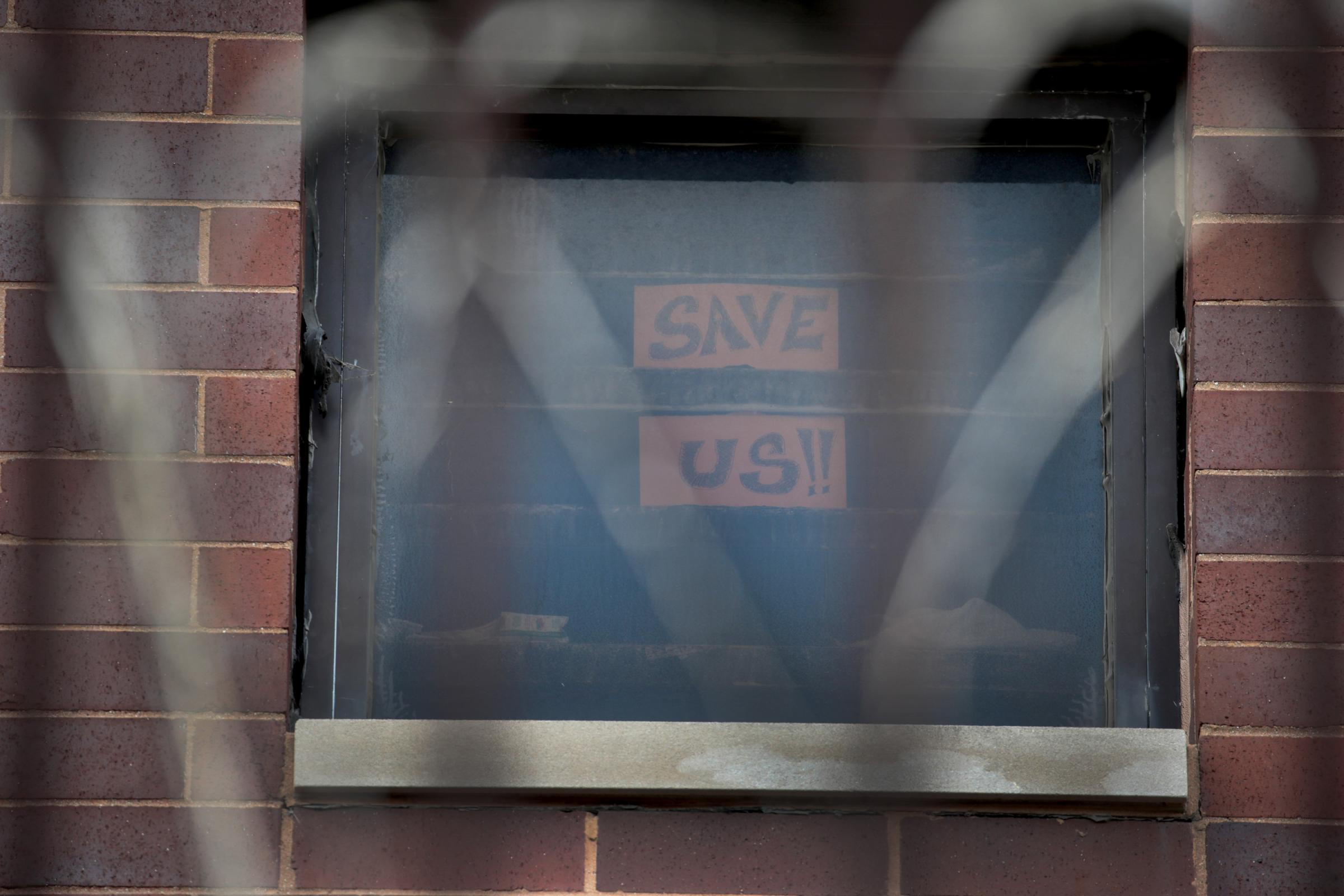Brent Jaffe, 33, was released from the Washington D.C. Department of Corrections (DOC) at the end of March after filing a motion citing concerns over the spread of the novel coronavirus. Jaffe was most recently housed in the Central Treatment Facility (CTF), one of three D.C. correctional facilities, where he witnessed the DOC’s initial response to the pandemic, and the CTF’s first confirmed case.
While he remains under house arrest, Jaffe has maintained relationships with people still incarcerated and hopes to raise awareness of their concerns. There are now 180 confirmed cases of COVID-19 in the D.C. DOC.

Every morning the news was on the TV in our cellblock. We were watching, but there was a sense of disconnect from the virus at first — like it wasn’t real or wasn’t really going on.
The first thing that made us take notice was when colleges sent all their kids home from campuses, and said they weren’t [reopening] after spring break. That’s when everyone was saying, dang, this corona thing’s real.
In my cellblock we’re pretty much out all day. [Corrections officers] unlock our cells at 9 o’clock in the morning and then, other than a period between 2:30 and 5 in the afternoon for count, we’re out until 10 p.m.. There’s about 50-plus people living in our unit — there’s no legitimate way to practice social distancing. So after the shock of what was going on started to wear off, there was a sense of fear. Anytime someone coughed, you were concerned about it.
The D.C. DOC did not immediately respond to TIME’s request for comment, though a “coronavirus prevention” page on the DOC’s website states that “the DOC is following guidance from DC Health and the Centers for Disease Control (CDC) to make health and safety decisions with regard preventing the spread of COVID-19 among staff and residents in its facilities”.
The page lists measures undertaken to prevent COVID-19 transmission, including screenings and quarantines, a cleaning regime, PPE provided for prison workers, and “a new bar of soap [provided to each inmate] every week, free of charge.”
I asked my lawyer to file a motion for my release on COVID-19 grounds. The judge was actually very receptive — it was very clear, in my opinion, [that he] was trying to get the government to agree to any options to get me out of jail. But the prosecutor said, “As soon as there’s a first case, we’ll be more inclined to let people out… As of right now, DOC has been doing an amazing job.”
Now at that point, it’s true there were no positive tests in the D.C. DOC. Of course, it’s also questionable how many people had been tested. And what were the incentives to tell someone you [were feeling sick]? So you can get locked in a cell 24 hours a day by yourself? You’d get put in confinement, basically in lockdown like you broke some sort of rule. That’s a disincentive to letting personnel know that you’re experiencing symptoms.

A few days after my hearing, a kitchen worker in my cell block came back from his shift early — he’d refused to work because he’d heard one of the other people in the kitchen had tested positive. He said that correctional officers had found out at roll call and told him that morning.
That same day, the judge issued an order releasing me on house arrest. So the D.C. DOC complied with reporting when the first case was confirmed, but the government was sitting there so adamantly arguing about what a great job they had done [at my hearing] when those people that tested positive three days later were probably already [infected]. And the judge was like, “There’s a 14-day incubation period. By the time the first person gets tested positive, it’s going to be a little bit too late.” But then, of course, he ended up not making his ruling that day either.
Now I hear friends and family complaining about being stuck inside, and I’m like, ‘O.K., I have the solution to your problem: Go get yourself a workout mat. Go lay it in your bathtub and live there for a couple of days, then let me know how nice it is to [move around] the rest of your house.’ And that’s not to mention the phone and the Internet and the comfortable bed.
At first, the only thing that DOC officials had done was implement a policy where they’d come over the loudspeaker every two hours and say, “It’s time to start your sanitation process.” But the sanitation process was a joke. There wasn’t access to proper chemicals.
When I was released, on March 26, nothing else had changed. At the beginning of the next week though, DOC officials started doing what they called a modified lockdown. Inmates are not on real lockdown, but for all purposes, they’re still spending 23 hours a day in their cell now.

I know of multiple people who have tested positive; I’ve talked with friends still inside and they say things are getting worse by the day. One told me that four people have been infected in their unit alone, and [that guards] brought one inmate back from quarantine without a mask and they still allowed her to rec with others. Some guards have apparently not been wearing masks either.
Another friend said [their unit] has been quarantined for two weeks due to an outbreak of the virus on the block — and that officers are afraid to work because people have been hospitalized. [They said] that it’s scary to be living in such close proximity to the virus.
I can only imagine how it feels being in there as things get worse and worse. It’s crazy to me that governors and prison officials who have the authority to release individuals under whatever laws are permitted aren’t [freeing more] at-risk people. You’ve got people dying.
I’m hoping that this pandemic will increase the speed of the criminal justice reform movement in the U.S. — the number of people that we incarcerate compared to other countries just doesn’t make sense. I think it will serve as a good way to humanize prisoners; compassionate releases, or older people that have long sentences, getting all these people out. I hope there will be a lot more positive attention as opposed to the negative connotations that usually go with [incarcerated people].
—As told to Josiah Bates.
Please send tips, leads, and stories from the frontlines to virus@time.com.
More Must-Reads From TIME
- The 100 Most Influential People of 2024
- How Far Trump Would Go
- Scenes From Pro-Palestinian Encampments Across U.S. Universities
- Saving Seconds Is Better Than Hours
- Why Your Breakfast Should Start with a Vegetable
- 6 Compliments That Land Every Time
- Welcome to the Golden Age of Ryan Gosling
- Want Weekly Recs on What to Watch, Read, and More? Sign Up for Worth Your Time
Contact us at letters@time.com